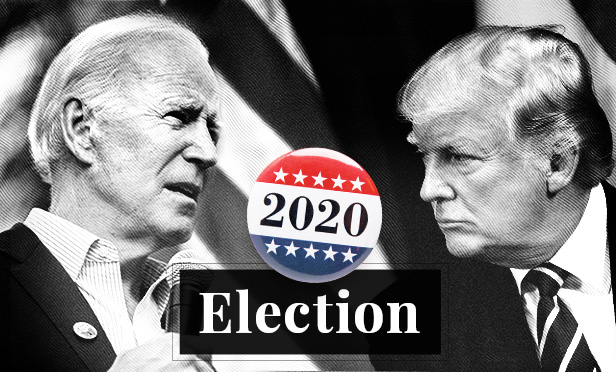
 The global pandemic and its associated economic downturn combined with the most visible civil rights and equality discussions since Martin Luther King have knocked health care from the throne as voters' most important issue. However, health care remains the central policy issue of the 2020 election. Candidate Joe Biden and President Donald Trump promise two distinctively different paths for health care in America.
The global pandemic and its associated economic downturn combined with the most visible civil rights and equality discussions since Martin Luther King have knocked health care from the throne as voters' most important issue. However, health care remains the central policy issue of the 2020 election. Candidate Joe Biden and President Donald Trump promise two distinctively different paths for health care in America.
Let's take a look at both.
What if Joe Biden wins the 2020 presidential election?
Public Plan Option
Biden is inextricably linked to the Affordable Care Act (aka, ACA or Obamacare). He is committed to finishing the work he began as Vice President by expanding the ACA's reach and choice.
The cornerstone of the Biden-Harris platform is the creation of a public plan option. Although the new plan is not Medicare, it would be very "Medicare-like." The federal government would set the provider reimbursements based on Medicare rates and would also set the premium rates for participants.
The newly created public plan would be offered to every American who does not currently have government-sponsored health insurance. People would have a choice between their current coverage and the government-run plan.
The biggest key to lower cost in the public option is the lower medical provider reimbursements. You must lower the cost of health care to significantly lower the cost of health insurance. Private insurance pays America's hospitals an average of more than 2.5 times what Medicare pays for the same services. A public plan option based on Medicare reimbursements levels will force America's hospitals and health insurance companies to rethink the gap between Medicare and private insurance levels.
You can expect that hospital lobby groups will be vehemently opposed to a Medicare-based public plan option.
Uninsured
The Biden administration has outlined three distinct steps to lower the number of uninsured Americans.
Medicaid
The newly created public option would be used to provide access to coverage for low-income individuals in states that chose to not expand Medicaid eligibility under the ACA.
Obamacare Subsidies
The Biden administration has promised to increase and expand ACA subsidies. Currently, individuals who have access to affordable employer coverage and those in households who earn over 400% of the federal poverty level are not eligible for subsidies. Expect the restrictions to be relaxed or eliminated. The subsidies could also be increased by changing the subsidy formula or by basing the subsidy on a richer plan design.
Medicare Eligibility
Eligibility for Medicare is currently set at age 65. The Biden-Harris platform drops eligibility to age 60. The Congressional Budget Office (CBO) recently revised its financial projections for the solvency of the Medicare Part A trust fund, which is now scheduled to become insolvent in 2024 based on current eligibility and taxation. This solvency issue will create pressure to either change Medicare taxes or forgo the eligibility change.



